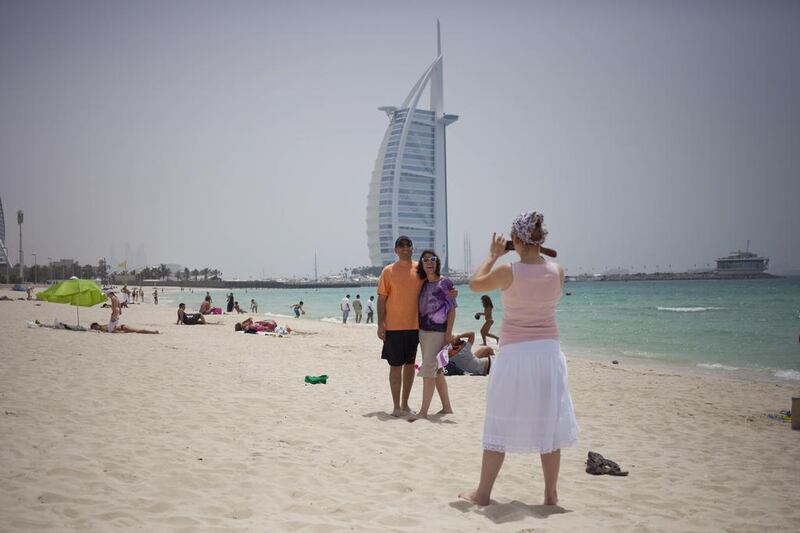DUBAI // Police have issued a list of the top legal blunders made by tourists who visit the country, warning them that ignorance of the law is no defence in court.
The Ministry of Interior's monthly English-language magazine, 999, has published the list of faux pas, often committed by foreign visitors.
It includes common, internationally recognised crimes like drink driving – but also UAE-specific offences like taking pictures of strangers and sunbathing in very skimpy clothing.
“There is no valid reason for tourists and visitors to not find out more about their destination country’s customs and laws before or even after arriving here,” said editor of the magazine, Lt Col Awadh Saleh Al Kindi.
“There are enough learning resources – and our cover story will make for a very good starting point for anyone considering visiting the UAE for work or play.”
He added: “The culture and laws in the UAE are designed in a way to safeguard personal freedom on the one hand and to ensure that everyone is respectful of each other regardless of their faith and nationality, on the other.
“Visitors and residents should avoid improper conduct or inappropriate behaviour that can otherwise lead to fines, imprisonment and deportation.”
The magazine also highlights how the UAE has established a "Law Respect Culture Bureau", which would encourage residents and visitors alike to "respect both the written laws [legislation] and unwritten laws [values and morals]", according to a statement.
Dr Jamal Hussein Al Sumaiti, the director general of Dubai Judicial Institute, said the UAE allowed freedom of expression, but that freedom comes with the obligation to respect others.
"It is my right to criticise the behaviour of a general person or an institution, but I have no right to swear or defame," he said.
"There is a difference between an objective and positive criticism and swearing. Swearing may be a form of expression, but the law does not protect the utterance of insults or curses and defamation or assaulting individuals or other institutions," he said.
mcroucher@thenational.ae






